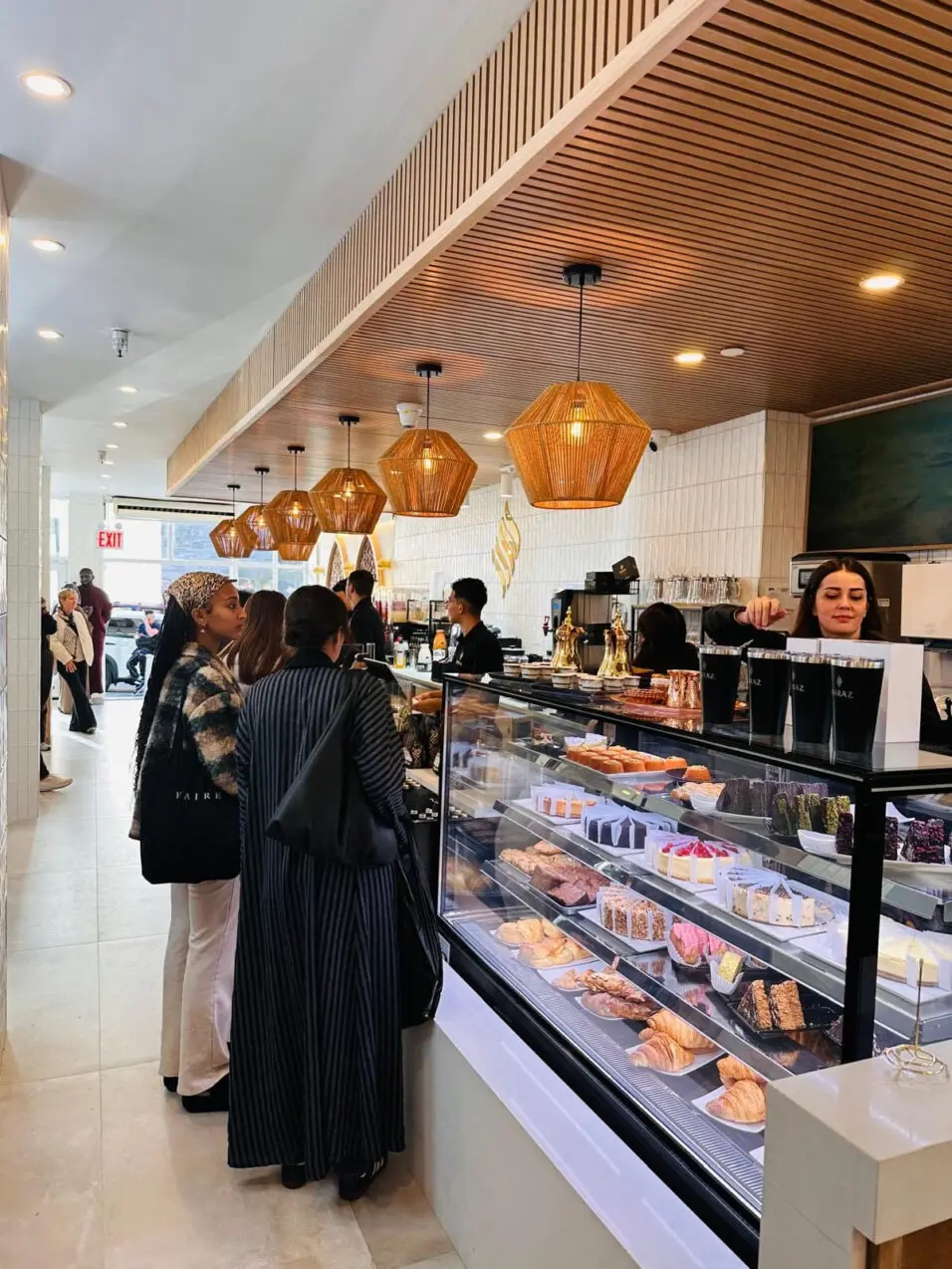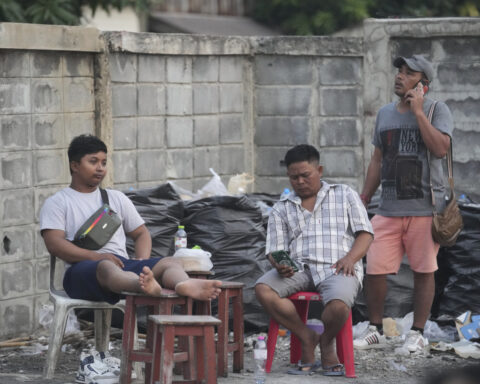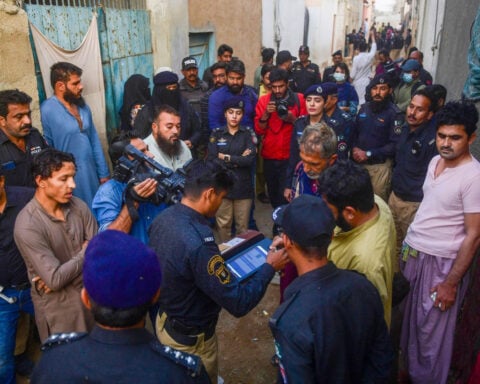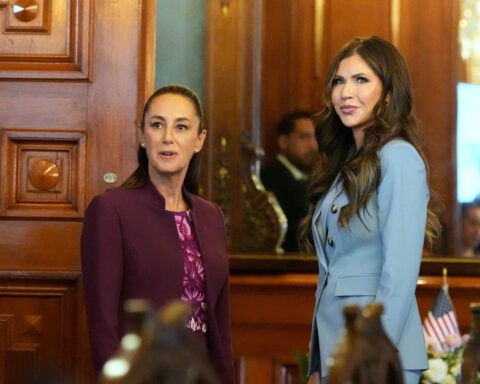New York (CNN) — The most popular spot on a late Friday night in a pocket of Manhattan’s West Village isn’t a trendy bar or a Michelin-starred restaurant but a Yemeni coffee house chain strictly serving coffee, tea and pastries.
A step into Qahwah House on Carmine Street offers a rich whiff of cardamom, Arabic music and crowds of people both at tables and in line to order. The energy spills over into the sidewalk, where some begin performing a Levantine folk dance known as dabke. It’s a snapshot of various Eastern cultures; Arabic, Farsi and Urdu fill the air, and some customers don traditional attire.
Qahwah House is just one of a string of Yemeni coffee chains that originated in the Arab-populated Detroit area and are rapidly springing up across the country, often where there are significant Middle Eastern and Muslim populations. Nineteen Qahwah House locations are open across seven states, with more under construction and expected to open this year. Another chain, Haraz, opened this month in the pricey SoHo neighborhood in Manhattan, with at least six more in the region planned in the next two years. Times Square will be home to two other chains, MOKAFÉ and Qamaria Yemeni Coffee Co.
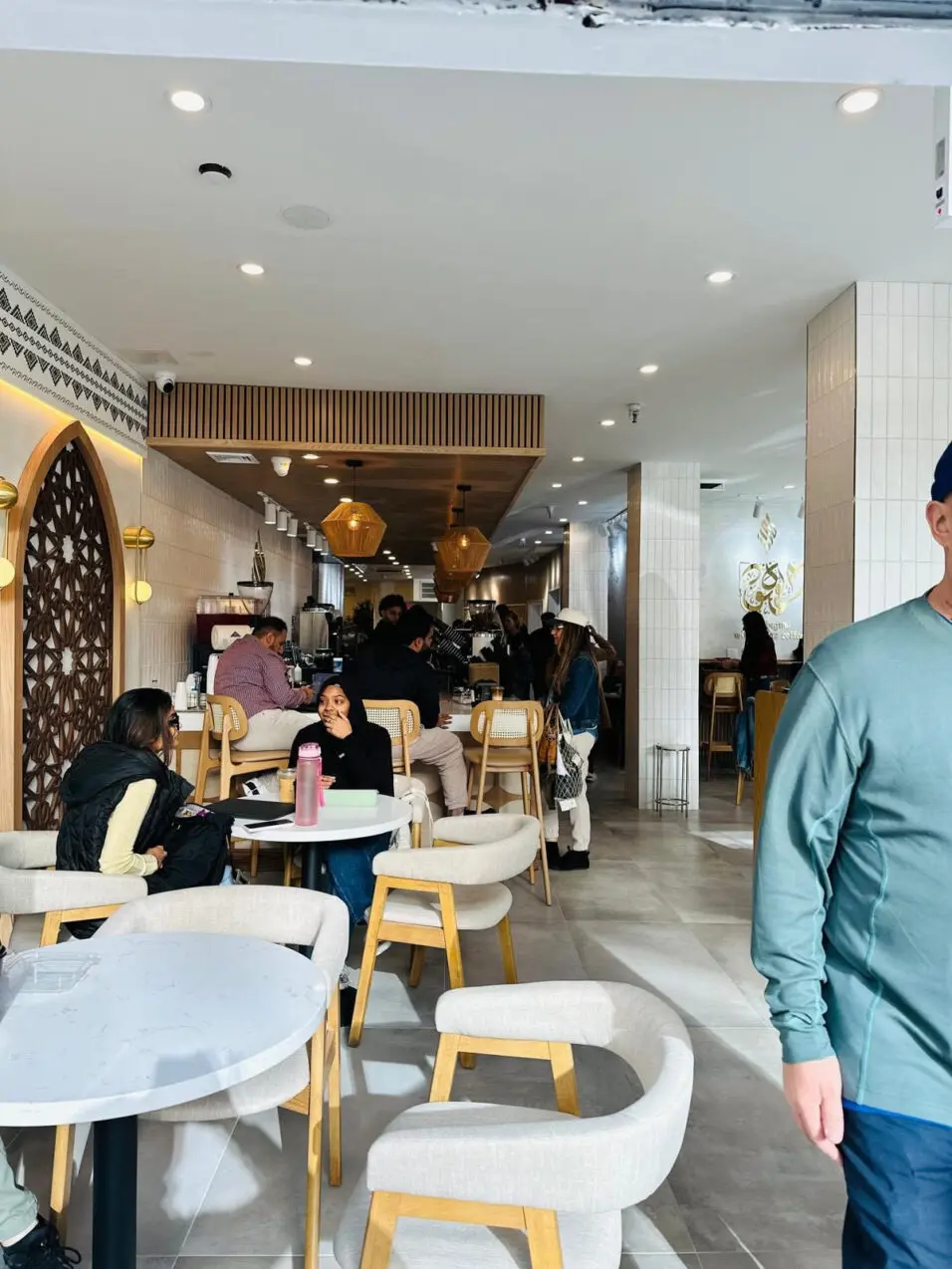
The rapid expansion of these shops underscores the demand for late-night social spots for not only young Muslims and Middle Easterners, but also younger people who are looking for a non-digital third space where they can hang out without alcohol or having to yell over loud music.
They don’t have many other options. Malls, a traditional third place for young people, are growing more and more unpopular. Chains like Starbucks have become more like take-out counters. Alcohol-free lifestyles are growing even for those outside of the Muslim faith, which many practicing the religion already take part in.
So for many young people in urban areas, especially those from immigrant communities looking for a way to connect to their cultures, it’s a great option.
In New York “people like to go out clubbing,” Bhavishya Banda, a strategy consultant, said one late night at Qahwah House. “Personally, I don’t find enjoyment in that. But I want to go out at night.”
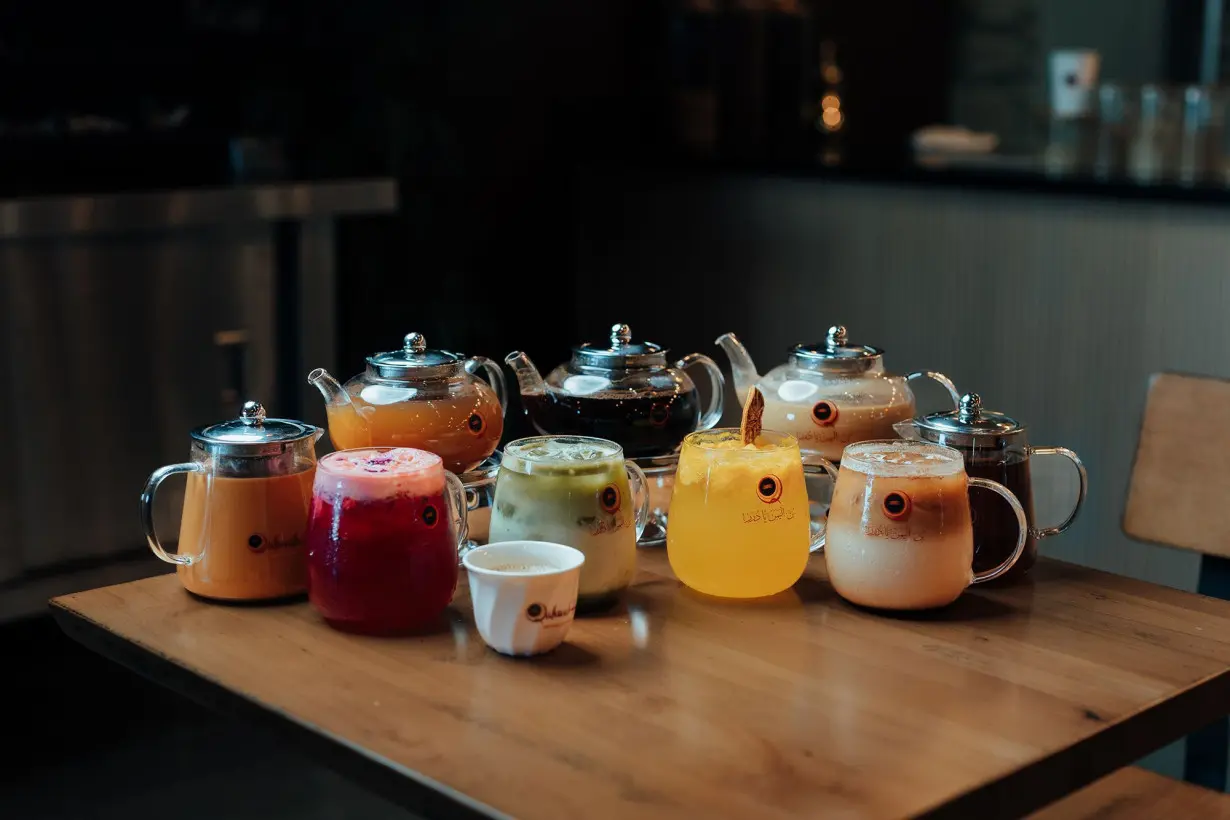
Third spaces are not a new concept. Sober bars popping up across the country aim to build a sense of community and social connections. But Yemeni coffee houses have taken up both those trends and boomed.
Younger people, particularly the children of immigrants who are straddling two different cultures “enjoy the fact that they’re consuming something that is really kind of traditional, but in this very new, modern, contemporary context,” said Sally Howell, professor of Arab American studies at the University of Michigan–Dearborn.
Where did Yemeni coffee shops come from?
In the Middle East, coffee isn’t a grab-and-go drink used to wake up with, but a social exchange. While coffee beans originated in Ethiopia, the earliest evidence of cultivation appeared in Yemen through trading across the Red Sea.
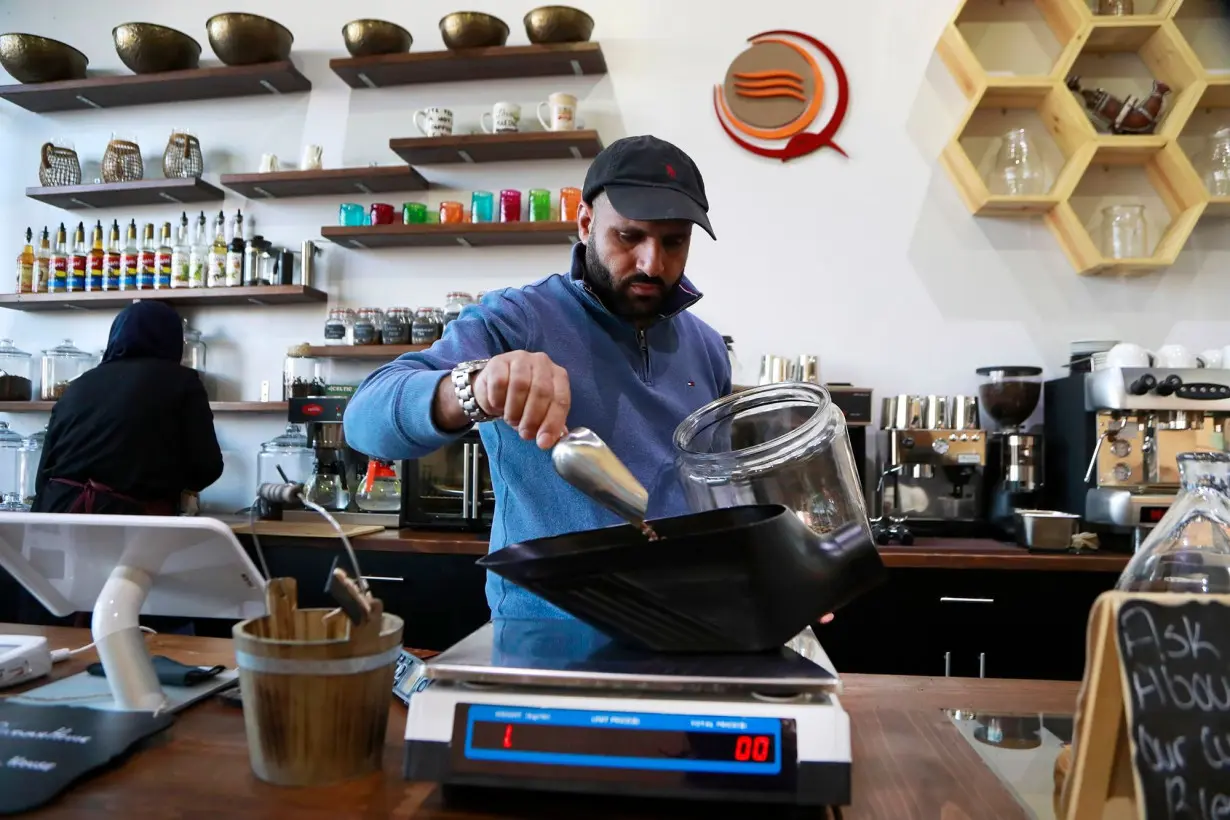
The practice followed into the early 20th century and across the world, when the first wave of Middle Eastern immigrants came to Detroit to work in the auto industry or shipping yards, Howell said. Most immigrants were men who migrated alone, so one of the first institutions they created were coffee houses where they would gather to socialize, share news about their home country, and even write letters back home. Many of the initial mosques in the area were originally established in the backs of the coffee houses.
Yemeni men working in shipping on the Great Lakes “would work for months at a time and then have a few weeks off and then work again,” leaving them unable to visit their families back in Yemen, Howell said. “The coffee houses in the Detroit area were a really important institution.”
“Our mission is to bring everyone in one place and share history,” Ibrahim Alhasbani, founder of the first contemporary Yemeni coffee chain Qahwah House, told CNN. “That’s why we serve the coffee in a pot. People come inside the store and they share one pot and they can talk and they share different stories.”
A new chapter for Yemeni coffee
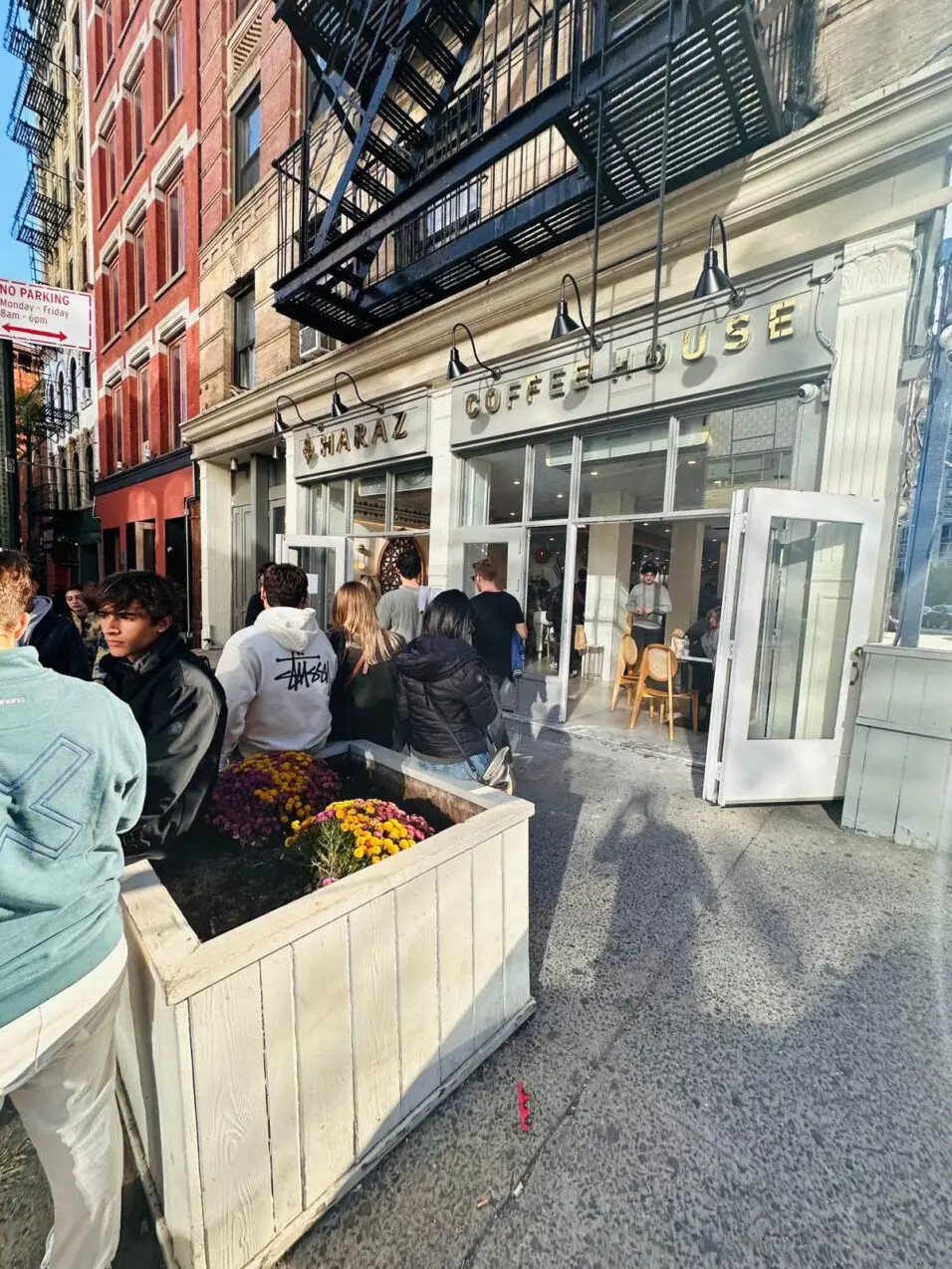
Contemporary chains are designed by a new demographic — the descendants of these immigrants who are bringing Yemeni coffee culture to the American mainstream.
The very first Qahwah Houses in Dearborn were airy and upscale, a familiar setting to patrons of established coffee chains. But they also brought with them Yemeni culture, with coffee beans imported from local farmers, artifacts from the region and the founder’s family tree on the wall.
“I come from a background of family farmers. We own the coffee farms in Yemen, we grew up with the coffee, we loved coffee,” Alhasbani said.
The new generation of Yemenis in the area benefitted from the support of a more established community, Howell said. Those like Alhasbani came in with investors: Yemeni entrepreneurs, professionals, medical professionals and engineers who give back to their community by sponsoring younger people.
Business experts say customers are attracted to authenticity. For example, Alhasbani hand mixes the ingredients for the drinks at his factory in Michigan and the coffee beans still come from farmers in Yemen.
“There’s been a lot of emphasis, especially in specialty coffee but also in the entertainment space, on being authentic and being real,” Hovig Tchalian, Assistant Professor of Clinical Entrepreneurship at USC Marshall School of Business, told CNN.
Growing outside of Dearborn
During the day, Yemeni coffeehouses function similar to many neighborhood spots. Patrons host meetings, college students study and others pop in for a quick cup to-go.
But at night, they serve as de-facto living rooms, especially for young Muslims who don’t go to clubs and bar. From New York to Dallas, especially during the late nights of Ramadan, the crowd overflows into the street and you often have to yell to be heard inside. Some young Muslims even venture to the coffee shops in hopes of finding a life partner.
Nowhere is this coffeehouse culture more pronounced, and celebrated, than in Dearborn, Michigan, a suburb of Detroit and home to one of the largest Arab American communities in the United States.
Downtown Dearborn is peppered with different Yemeni coffee houses, which Howell said helped revitalize the Detroit area after the city became the largest municipality go to bankrupt in 2013. And it’s only growing.
“It’s become sort of contagious,” Howell said. “Several Yemeni entrepreneurs are opening coffee houses of their own, each with its own sort of style and atmosphere.”
The coffee chains have big ambitions beyond Dearborn. Qahwah House hopes to open another 20 to 30 locations in the next year, spanning across 12 states and Canada, Alhasbani said. They are also licensed out, but Alhasbani says he sets a high standard before agreeing to let anyone open a shop.
“We have too many people that come (asking me) they want to open. I have more than 10 different requests a day just to open this kind of business,” he said. “We don’t give anyone license until we make sure the person has the love for the brand and his mind and his heart in the Qahwah House.”
Another authentic Yemeni coffee chain, Haraz, also sees crowds of people throughout the day and night. They opened their first location in New York City last week — less than half a mile away from Qahwah House’s downtown Manhattan shop — and the franchisees plan to grow.
But growth isn’t without challenges. Haraz directly sources its coffee from the high-altitude region in Yemen it’s named after. Since shipping from the Red Sea has become difficult or delayed, co-franchisee Ahmed Moustafa said they have three years of beans on reserve in Michigan so they can keep up with demand while preserving the original flavor.
At Haraz’s newest location, the space visibly resembles Islamic architecture, with pointed arches adorning the walls. But its location in pricey Soho aims to branch outside of the Middle Eastern communities in Brooklyn and Queens.
“I had feedback from a lady that lives around the block, she said ‘I didn’t even know about coffee from Yemen,’” Moustafa said.
The-CNN-Wire
™ & © 2024 Cable News Network, Inc., a Warner Bros. Discovery Company. All rights reserved.

 Trump has begun another trade war. Here's a timeline of how we got here
Trump has begun another trade war. Here's a timeline of how we got here
 Canada's leader laments lost friendship with US in town that sheltered stranded Americans after 9/11
Canada's leader laments lost friendship with US in town that sheltered stranded Americans after 9/11
 Chinese EV giant BYD's fourth-quarter profit leaps 73%
Chinese EV giant BYD's fourth-quarter profit leaps 73%
 You're an American in another land? Prepare to talk about the why and how of Trump 2.0
You're an American in another land? Prepare to talk about the why and how of Trump 2.0
 Chalk talk: Star power, top teams and No. 5 seeds headline the women's March Madness Sweet 16
Chalk talk: Star power, top teams and No. 5 seeds headline the women's March Madness Sweet 16
 Purdue returns to Sweet 16 with 76-62 win over McNeese in March Madness
Purdue returns to Sweet 16 with 76-62 win over McNeese in March Madness
